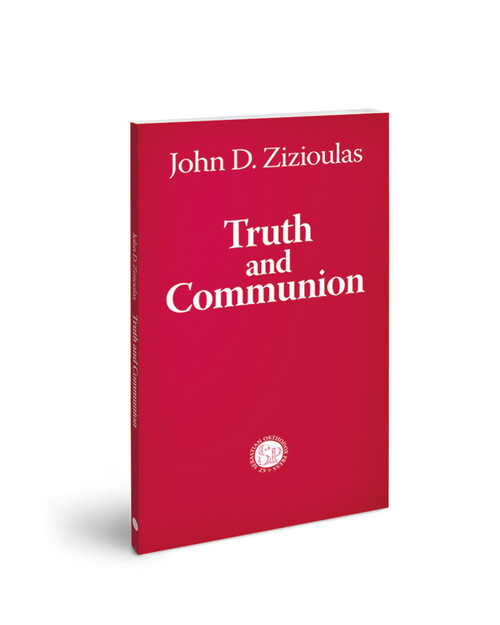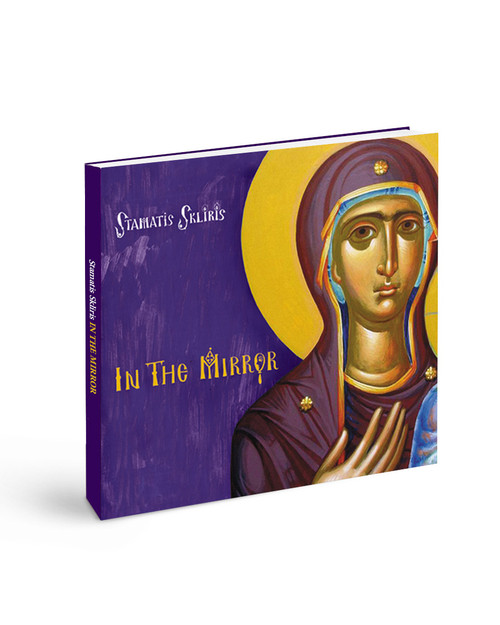Author: Christos Yannaras
This collection of articles traces the thought of Christos Yannaras through his long journey in discovering the meaning of existence, communion, and history. No fewer than twenty articles of passionate significance and substance have at present been gathered together in this volume. Yannaras’ principal resource for unveiling the meaning of existence and communion is the Trinitarian God as the causal principle of existential freedom. Insistence on the primacy, uniqueness, and eternal value of human personality prevails in almost all his works and inspires his own vigorous theological and ecumenical engagement based on the Orthodox Eucharistic and ascetic tradition. Professor Yannaras – extracting “Orthodox” from its currently fashionable academic and ideological context – points out that Orthodoxy must find a way to reach the particular form of society, which has become entrenched in a culture of individualism.
Our faith in the Church’s call to transcend and transform our natural limitations is essential for our path to salvation. This is exactly the point to which Yannaras tries to lead us – and we are grateful to him for this – through his inexorably personal search for the meaning of existence, communion, eros, and history.
Also available as E-book on Kindle!
Language: English
Number of pages: 202, softbound
ISBN:978-1-936773-03-9
Published: 2011
Christos Yannaras was a towering figure in modern Orthodox theology and philosophy, a voice that redefined Greek theological discourse in the second half of the twentieth century. Born in Athens on April 10, 1935, and passing away on August 24, 2024, Yannaras leaves behind a body of work whose resonance extended far beyond the bounds of academia and Greece. Trained initially within the moral rigor of the Zoe Brotherhood, Yannaras later broke from its pietistic confines, discovering a deeper, more apophatic vision of Orthodoxy under the influence of thinkers like Demetrios Koutroubis and Zissimos Lorentzatos. His intellectual journey led him to the universities of Bonn and Paris, where he encountered Heidegger, Sartre, and the Paris School of Orthodox theology. His doctoral studies, first in Paris on St. John Climacus and then in Thessaloniki on the concept of the person, laid the foundation for a life-long project: to recover the ecclesial and relational core of Christian ontology. A prolific author, Yannaras published more than fifty books, including The Freedom of Morality, Person and Eros, and Postmodern Metaphysics, many of which were translated into English and other languages. He was also a public intellectual—his journalistic writings spanned five decades and gave voice to theological insights amidst the shifting cultural, political, and social tides of Greece. Despite the resistance he faced from academic institutions in his homeland, Yannaras secured a professorship at Panteios University in 1982. His presence was at once controversial and charismatic: passionately critical of “religion” when it meant individualism and moralism, and fiercely committed to the Church as communion—where truth is relational, and ontology is fulfilled in love. Yannaras championed a vision of faith not as a set of propositional truths but as bios—a mode of existence grounded in Eucharistic communion and personal relation. His critique of ecclesiastical institutions, his plea for vernacular liturgical language, and his rejection of clericalism remained consistent throughout his life. Though misunderstood by many, he was embraced by others as a prophet—first a scandal, later a sage. His final years were spent on the island of Kythera, where he died peacefully. In the end, Christos Yannaras was not merely a theologian or philosopher; he was a witness—fiercely loyal to truth, relentlessly relational, and forever longing for the Church to become what it is: the presence of the Kingdom in history.


































